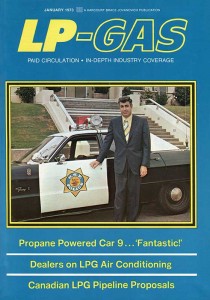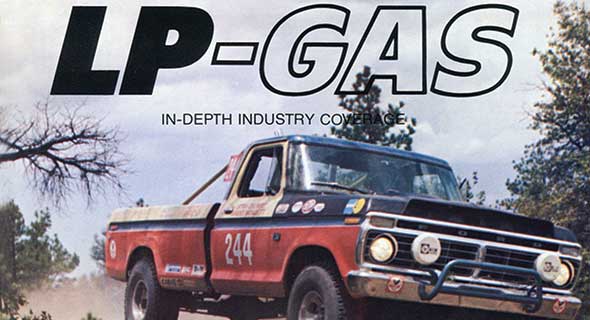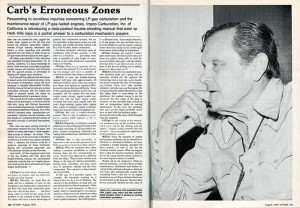A look back at autogas use
Several factors prompt propane’s popularity
 Pioneers first began converting vehicles to propane autogas, or known simply as motor fuel, well before LP Gas’ inaugural year of 1941.
Pioneers first began converting vehicles to propane autogas, or known simply as motor fuel, well before LP Gas’ inaugural year of 1941.
However, it wasn’t until the late 1960s that it became a more mainstream alternative fuel that gained attention in the magazine. Increasing concerns about air pollution boosted propane’s popularity in the 1960s and 1970s.
According to a feature that ran in the November 1969 issue of LP Gas, California regulations on automotive exhaust emission control prompted some of the growing interest in propane as a motor fuel. Additionally, air pollution personnel told LP Gas that propane “has merit in reducing exhaust emissions.”
In addition to propane’s environmental benefits, people also liked how it operated compared to gasoline. In the early 1970s, the South San Francisco Police Department added a propane-fueled squad car, which the station dubbed “Car 9.” Pargas Co., a retailer based in San Leandro, California, helped to convert the vehicle to propane. A number of officers said it was “the best-running police unit in the department,” according to an article that ran in the January 1973 issue of LP Gas.
Commercial businesses, such as Interstate Brands, also began committing portions of their vehicle fleets to propane. The bakery delivery company operated 23 of its trucks on propane in the late 1970s. They were converted with the help of Herb Hills, vice president of IMPCO Carburetion, and Bob Myers of Petrolane, per the June 1979 issue of LP Gas.
Concerns expressed over carburetion, maintenance of propane-fueled engines
Although propane-fueled vehicles of the 1970s were popular, they also encountered several problems with carburetion systems. Herb Hills, president of IMPCO Carburetion and an LP Gas Hall of Famer, provided some answers to those maintenance-related questions in the August 1978 issue. According to Hills, “All it takes [to work on propane-fueled vehicles] is a basic knowledge of what’s under the hood, some idea of possible trouble causes and familiarity with the age-old process of elimination in dealing with engine repair problems.”
Motor fuel’s variety of applications
A few articles in the 1970s detailed stories of racing cars and trucks that ran on LP gas. According to a January 1975 article in LP Gas, “Throw an LP-powered pickup into the thick of an international off-road racing competition and what do you get? A winner, plus invaluable data regarding carburetion’s merits and ways to make it even better.” Curt Wingett of Long Beach, California, worked on a 1973 F-250 Ford pickup truck so that it would run on propane. The vehicle competed in six off-road competitions, two of which the propane-fueled vehicle won.


















